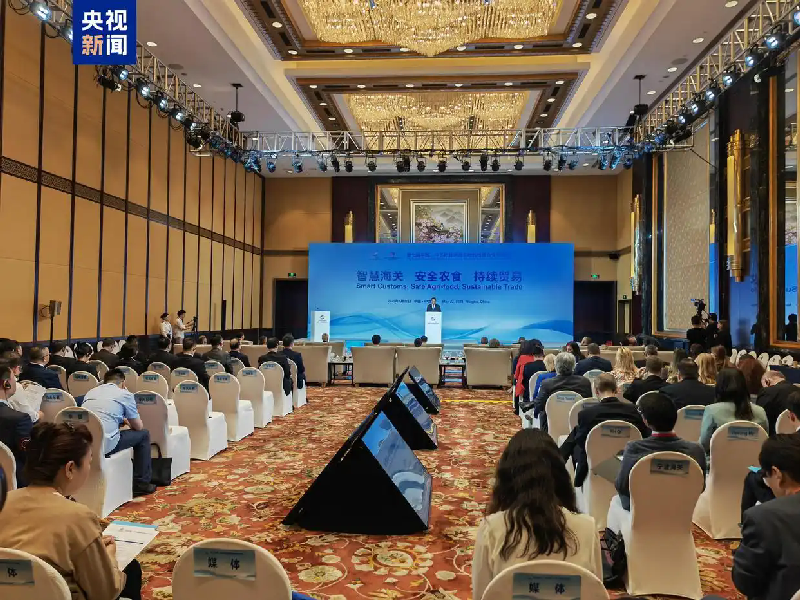(Reporter Sun Jiali) On the afternoon of yesterday, the 7th China-CEEC Customs Inspection and Quarantine Cooperation Dialogue was held in Ningbo. During the event, two inspection and quarantine access protocols for agricultural and food products from Central and Eastern European countries were signed on-site, granting Bulgarian saffron and Croatian tuna permission to be exported to China. Zhao Zenglian, Deputy Director of GACC, delivered the keynote speech, while Vice Governor Lu Shan gave a formal address.
Over the past decade, agricultural trade has been a key focus within the China-CEEC Cooperation Mechanism, characterized by continuous innovation and "new ideas".
The Bulgarian saffron approved for export to China is a premium-quality spice and medicinal plant. It is extensively utilized in cooking (for flavoring and coloring), traditional medicine (noted for its antidepressant and antioxidant properties), and the cosmetics industry.
Croatia is a pioneer in Mediterranean bluefin tuna farming and holds the exclusive rights to farm juveniles of wild-caught bluefin tuna. Croatian tuna is rich in protein and has a fine, tender texture. It is considered a premium ingredient for sashimi and sushi, and it is commonly exported to Japan, Spain, and Italy.
An increasing number of agricultural and food products from CEEC are entering the Chinese market, offering Chinese consumers more diverse choices while also creating additional opportunities for Central and Eastern European enterprises.
Data released by GACC on the same day revealed that, so far, 126 types of agricultural and food products from 14 Central and Eastern European countries have gained market access, with a total of 3,430 overseas agricultural product companies registered.
Ningbo is positioning itself as the primary gateway for Central and Eastern European goods entering the Chinese market, with agricultural and food products being one of the key areas of focus. By facilitating the opening of the "green channel" for imports, Ningbo imported agricultural products worth RMB 2.3 billion from CEEC last year, marking a 13-fold increase compared to 10 years ago. Among these, the import volumes of dairy products and alcoholic beverages grew by 71 times and 3 times respectively over the past decade.
The ongoing expansion of agricultural and food product imports has further driven the stable growth of foreign trade between China and CEEC.
In 2024, the total value of bilateral trade between China and CEEC reached USD 142.27 billion, representing a 6.3% increase compared to the same period last year, demonstrating robust growth momentum. In the first four months of this year, China's total import and export volume with CEEC reached RMB 329.68 billion, of which Ningbo's import and export volume with these countries amounted to RMB 19.7 billion.
"Over the years, Bulgaria and China have achieved outstanding results in agriculture and food collaboration. We look forward to working with China to strengthen the resilience of the international supply chain, taking agricultural food product trade as a starting point, and continuously tapping the growth potential of economic and trade cooperation", said George Takhov, Bulgaria's Minister of Agriculture and Food.
It is reported that under the theme "Smart Customs, Safe Agri-Food, Sustainable Trade", this dialogue aimed to enhance collaboration between Chinese and CEEC customs and quarantine authorities, expand agricultural trade volume, and facilitate secure and efficient customs clearance.
Yang Yong was in attendance.
Disclaimer:The above content is translated from Chinese version of Ningbo Daily. The Ningbo Daily version shall prevail.
Related News

Ningbo's cross-border e-commerce soars in 618 festival
2025-06-26
Ningbo's cross-border e-commerce sector saw stellar results during the 618 shopping festival, racking up over 13.36 million orders and sales worth 4.59 billion yuan ($630 million).

Expansion! The number of agricultural and food products permitted for export to China from 14 Central and Eastern European countries has increased to 126
2025-05-26
The 7th China-CEEC Customs Inspection and Quarantine Cooperation Dialogue was held in 22nd, May in Ningbo, Zhejiang Province.
Hot News